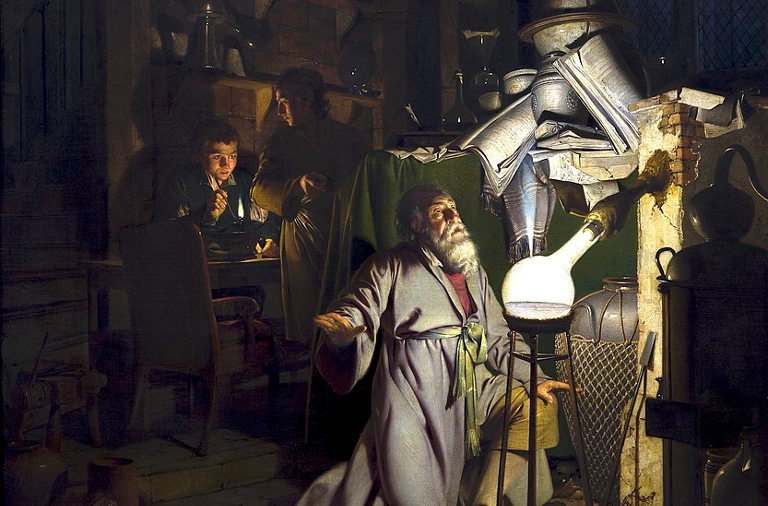Ed. note: From the Great Transition Initiative’s latest forum After the Pandemic, Which Future?:
How will today’s crisis alter the shape of tomorrow’s world? Which scenario—Conventional Worlds, Barbarization, Great Transition—has become more likely? How can we seize the moment to propel transformation?
Opener by Paul Raskin:
The Question Before Us
The coronavirus outbreak has disrupted our lives, equanimity, and assumptions. With good reason, the policy response has centered on emergency measures to mitigate human suffering, especially mobilizing public health resources, practicing social distancing, and providing relief for workers and businesses displaced by shrunken economies. Yet, even as debate rages on the timeliness and design of these responses, we also need to stand back to consider the longer-term implications.
The pandemic is a rupture in historic time that shakes the continuity of institutions and consciousness. The discussants in this forum have been asked to share their insights, speculations, and questions on how COVID-19 might alter the shape of the global future. To organize the discussion, the specific question before the panel is, which GTI scenarios have become more plausible, and which less? (See Taxonomy of the Future for brief sketches of these scenarios.)
There is much to ponder:
Conventional Worlds
Will globalized capitalism recover after a pause, or is the neoliberal Market Forces scenario no longer viable? Will a more cooperative, precautionary, and regulatory Policy Reform world come to dominate, and will it be enough to save corporate capitalism—or avoid collapse?
Barbarization
Will the stoking of fear and xenophobia feed resurgent nationalism and authoritarianism, presaging some form of Fortress World? Is there a danger of rampant conflict, loss of institutional order, and chaotic descent into Breakdown?
Great Transition
Will the traumatic encounter with the borderless virus etch our interconnectedness, shared risk, and need for global cooperation and governance into public consciousness? Can the emergency behavioral changes—working remotely, reduced travel, social distancing—foster sustainable consumption and economic degrowth, moving us past the dominant model of development? Have new opportunities opened for mitigating climate change, protecting wild places, localizing economies, and taking action on other fronts?
Of course, the world system does not enact a single scenario; rather, it is a composite of them all. Although the mix varies across nations and over time, forces of continuity, disintegration, and transformation are at play everywhere. Latent pressure for both progressive change and authoritarian reaction can build beneath the surface, then suddenly explode on the scene, disrupting business-as-usual.
At transformative moments, the plot of history can jump to another theater with different characters at center stage. With its ongoing jolt to global systems, the pandemic weakens entrenched institutions and amplifies dissent: the chaotic interim between “before” and “after” becomes a cauldron for historical surprise—for better or worse.
How will the pandemic shift the mélange of social scenarios competing for dominance? Grappling with this question, the forum participants, quite appropriately, paint diverse pictures of how this might play out. The further issue before them, and all of us, is how to shape the outcome: How can we seize the moment to steer toward the Great Transition we all hope for and know to be possible?
Response by Jeremy Lent
The Coronavirus as Crucible
The impact of coronavirus will be huge. But it is not yet the crisis that could push our global society into the phase change required for the Great Transition. These two simple facts offer a valuable framework for thinking about how to respond most effectively to the current situation.
To begin, let’s consider the magnitude of COVID-19’s impact. A year or two from now, the virus itself will likely have become a manageable part of our lives—effective treatments will have emerged; a vaccine will be available. But the effect of coronavirus on our global civilization will only just be unfolding. The massive disruptions we’re already seeing in our lives are just the first heralds of a historic transformation in political and societal norms.
If COVID-19 were spreading across a stable and resilient world, its impact could be abrupt but contained. Leaders would consult together, economies would be disrupted temporarily, people would make do for a while with changed circumstances, and then, after the shock, things would return to normal. That is not, however, the world in which we live. Instead, the pandemic is revealing the structural faults of the system, which have been papered over for decades even as they’ve been growing worse. Gaping economic inequalities, rampant ecological destruction, and pervasive political corruption are all results of unbalanced systems relying on each other to remain precariously poised. Now, as one system destabilizes, expect others to tumble down in tandem in a cascade known by researchers as “synchronous failure.” The last time a disruption of such magnitude occurred was during the period of the Great Depression and World War II, which shaped the geopolitical structure of our current world.
Coronavirus as a Crucible
In just a few months, we have seen political and economic ideas seriously discussed that had previously been dismissed as fanciful or utterly unacceptable: universal basic income, government intervention to house the homeless, and state surveillance on individual activity, to name just a few. This is just the beginning of a process that will expand exponentially in the ensuing months, as the world begins to reel from the aftereffects of the shutdown.
A crisis such as the coronavirus pandemic has a way of massively amplifying and accelerating changes that were already underway: shifts that might have taken decades can occur in weeks. Like a crucible, it has the potential to melt down the structures that currently exist and reshape them, perhaps unrecognizably.
What might the new shape of society look like? There is a serious risk that the new stable state will be closer to a Fortress World, with increased state surveillance, empowered authoritarianism, further breakdowns in democratic norms, mega-corporations even more dominant, and heightened militarism in international relations. In contrast, as many have pointed out, there is also a resurgence in the values that would underlie a transformed world, such as mutual aid, compassionate community, grassroots empowerment, and global collaboration.
The Next (Tidal) Wave
However, no matter which way the crucible hardens, COVID-19 is not a big enough phenomenon to reshape the flawed foundation of our current worldview that has brought our civilization to its current predicament. Our dominant worldview is based on an underlying theme of separation: people are separate from each other, humans are separate from nature, and nature itself is no more than an economic resource. The value system built on this foundation is the ultimate cause of the world’s gaping inequalities, our roller-coaster global financial system, our failure to respond to climate breakdown, and our unsustainable frenzy of consumption. It provides the implicit basis for ruthless neoliberal policies, the domination of transnational corporations focused solely on shareholder returns, and the worldwide obsession with maintaining unsustainable GDP growth on a finite planet.
As our civilization hurtles toward the precipice through this century, we will encounter ever greater shocks that will make COVID-19 seem like a leisurely rehearsal by contrast. We can expect massive urban flooding, global famines, and overwhelming refugee crises that will shake the foundations of our civilization’s overbuilt edifice. As the interconnected links of our global system unravel, millions of people will reject the values that wrought this devastation, and look for a replacement. The value system they choose will determine whether this century ends in a Fortress World, a civilizational collapse, or a fundamental transition to a life-affirming world based on dignity and community: an ecological civilization.
Coronavirus as a Trimtab
This is the broader context that sheds light on the importance of COVID-19. By itself, this pandemic won’t force the required change in our civilization’s direction, but it can begin to set a course away from the current trajectory of rampant self-destruction. Buckminster Fuller offered the brilliant metaphor of a trimtab, the miniature rudder in front of an ocean liner that helps the main rudder to shift direction almost effortlessly by changing the pressure in front of it. Similarly, we can view the potential for significant policy changes in the wake of coronavirus as a trimtab for the redirection of our global civilization that is the only way to avert catastrophe in the longer term.
This suggests that the most skillful approach to the current situation is to identify those policy initiatives that are already garnering popular support—and can also serve as trimtabs to move our entire civilization toward a new trajectory. In my view, some of the highest potential trimtabs are the idea of a universal basic income, which is now being discussed favorably even in conservative mouthpieces such as the Financial Times; Kate Raworth’s “doughnut economics,” which is being used as a model for Amsterdam’s coronavirus recovery plan; and full-scale implementation of a Green New Deal in the United States.
Others may identify other trimtabs that are just as, or even more, effective. I simply offer this framework as a lens to view how we might skillfully prioritize the progressive forces unleashed by the current pandemic as preparation for the far greater disruptions yet to come.
Teaser photo credit: Joseph Wright of Derby – http://www.tms.org/pubs/journals/JOM/0706/fig3.jpg http://www.culturevoyage.co.uk/wp-content/uploads/2013/03/Alchymist.jpg






